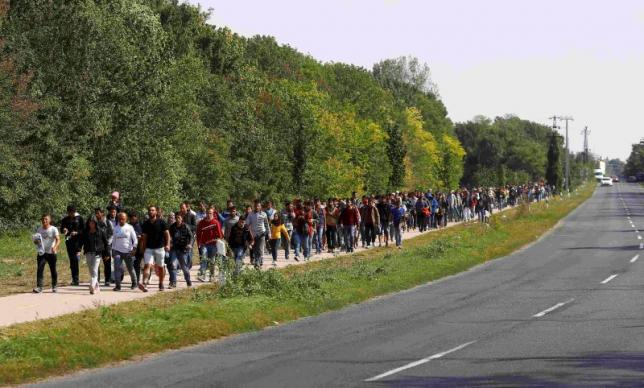Refugee and euro crises share features

The European Union sometimes moves forward in response to crises. When an inadequacy in the EU’s modus operandi is exposed – normally a failure of the states that belong to it to act in the common interest – the solution tends to involve the partial pooling of sovereignty.
Will the EU’s two latest crises – the influx of migrants and refugees and the travails of the single currency – follow the same pattern? Jean-Claude Juncker, the European Commission president, is one advocate of greater integration as a response. But there is also lots of resistance, because Europe’s people are suffering from integration malaise and are unwilling to show unlimited solidarity towards their neighbours.
On the migration front, Juncker has been joined by Germany’s Angela Merkel in calling for refugees to be shared out among EU countries. The pushback is coming mainly from eastern European countries such as Hungary. By contrast, with the euro, Germany is often the source of pushback. No sooner did Juncker call last week for euro countries to stand behind each other’s deposit insurance schemes than the German finance ministry shot down the idea.
Flows of people and money are different – and, in the former case, Europe is responding to wars, shocks which are mainly exogenous rather than self-inflicted. But there are similarities between the two crises. One is that, in each case, Europe embarked on highly symbolic projects before it had the tools to manage them properly.
The euro’s creation was as much a political initiative as an economic one. Little prior thought was given to how to make the euro zone’s national economies flexible enough to thrive within the straitjacket of a single currency, or to how to handle banking crises.
The removal of internal borders within the Schengen area, which encompasses 22 EU countries and four non-EU ones, was also strong on symbolism. It was not matched by the strengthening of external borders to stop illegal migrants or a common policy on how to share refugees.
In both cases, there were rules – but these haven’t worked properly. In the euro’s case, governments were supposed to limit their debt to 60 percent of GDP. Last year, the zone’s debt averaged 92 percent of GDP.
On migration, the rules have also broken down. Asylum seekers are supposed to be processed in the first EU country where they arrive. If their applications are successful, that country is responsible for giving them refuge. If not, the migrants are supposed to be sent back where they came from.
In fact, countries which are the first point of entry have often failed to process asylum seekers. This is especially so with Greece, which has emerged as a weak point in both the euro and refugee crises. But even if Greece wasn’t in the midst of political and economic turmoil, it would have struggled to police its vast sea border with Turkey. As it is, tens of thousands of migrants from Syria and elsewhere have streamed into the country and then headed north without being vetted and fingerprinted – something which has provoked Germany to reintroduce border controls with Austria.
Meanwhile, EU countries have a poor record of returning migrants who fail to secure asylum. In 2014, 470,000 people were supposed to be sent back to where they came from, but only 190,000 were actually returned. This is partly because it is hard to track down people who have been denied asylum and partly because the countries they came from often don’t want them back.
Both crises, meanwhile, have been plagued by finger-pointing. The Greeks, for example, have been criticised for low rates of tax collection. Athens has responded by attacking Berlin for stopping it defaulting on its debt early in the crisis – a move that would have cut the need for subsequent austerity but inflicted large losses on German and French banks.
Similarly, Hungary has been lambasted for building a razor-wire fence along its border with Serbia, which is not part of the EU. It has countered by saying it is Germany, not Europe, that faces a refugee problem because most asylum seekers want to make their way there.
The root cause of the refugee crisis is war in Syria, Iraq and Libya, for which there is no counterpart in the euro crisis. But in both cases there are two ways of handling the European aspect of the problem. One is by mutualising it: sharing refugees and debt. The other is by strengthening national responsibility.
In the monetary arena, this would be achieved by bailing in creditors of bust governments and banks, forcing them rather than foreign taxpayers to take the pain. With migration, this would mean more fences, walls and the end of Schengen.
In practice, a mixed approach is likely to prevail in both crises – with solidarity only going as far as domestic politics will allow. This may look messy. Europe isn’t ready for neater solutions.
[Reuters BreakingViews]





